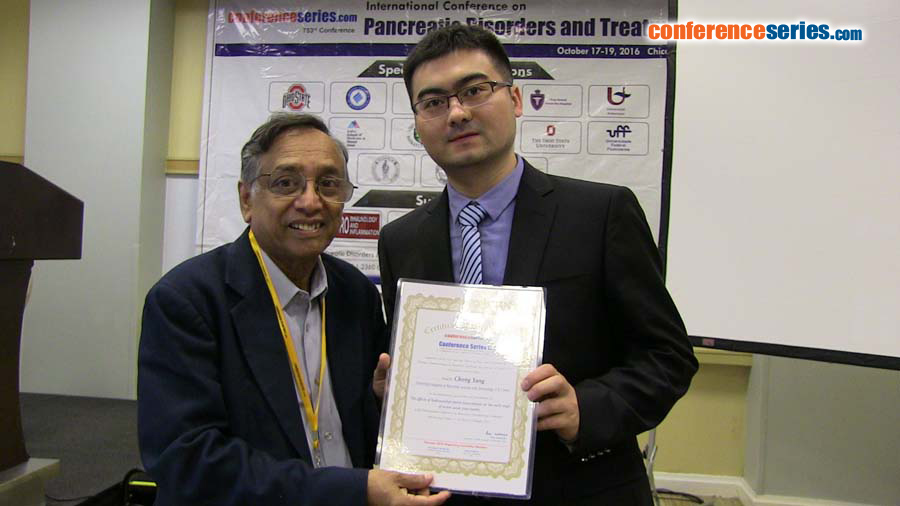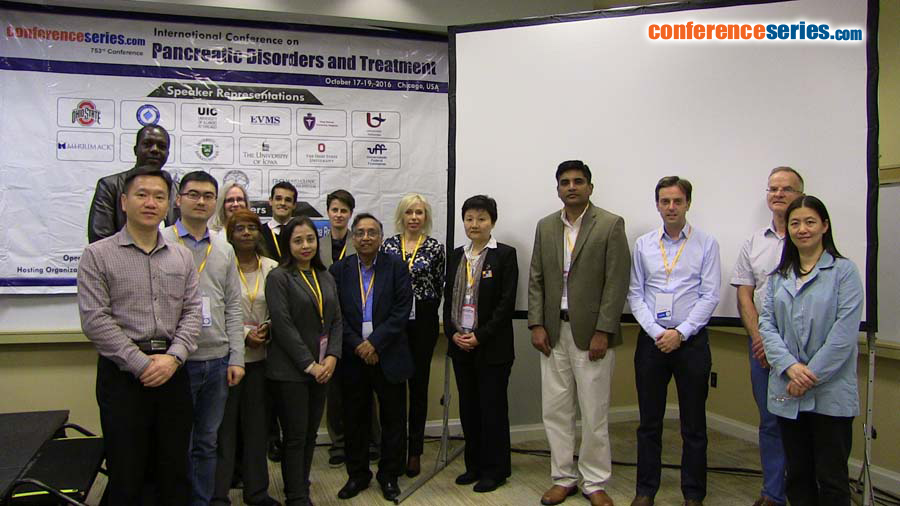
Animesh Dhar
University of Kansas Medical Center, Kansas City, Kansas
Title: Novel nutraceuticals GZ17-06.02 suppresses pancreatic cancer tumorigenesis and metastasis by inhibiting cancer stem cells
Biography
Biography: Animesh Dhar
Abstract
Purpose: Current therapeutic regimens have limited effectiveness in pancreatic adenocaricinom (PDAC). Novel therapeutic targets are needed to treat this disease. GZ17-06.02, novel nutraceutical, showed its anti-cancer properties in several cancers. We hypothesize that GZ17-06.02 will inhibit tumor progression and metastasis in PDAC.
Experimental Procedure: In this study, we have determined cell proliferation, pancosphere formation and apoptosis following treatment of different doses GZ17-06.02 in human pancreatic cancer cells. Cell cycle distribution and apoptosis were measured using flow cytometic analysis. Orthotopic pancreatic cancer model in athymic mice was developed and GZ17-06.02 was given orally for 20 days to those mice. Proliferative markers, pEGFR/pAkt and apoptotic markers, Bax/Bcl-2, were monitored following treatment with GZ17-06.02 in both in vivo and in vitro models. Metastatic markers, MMP-2 and MMP-9 were measured in metastatic tissues in orthotopic models.
Results: GZ17-06.02 inhibited proliferation of pancreatic cancer cell lines in a dose- and time-dependent manner. GZ17-06.02 induced apoptosis in both in vitro and in vivo pancreatic cancer. Moreover, the compound significantly inhibited epidermal growth factor receptor and Akt phosphorylation. Furthermore, GZ17-06.02 decreased the number and size of the pancospheres in S2-007 cells with concomitant inhibition of pancreatic cancer stem cell markers, DCLK1, Lgr5 and EpCam. The effect of GZ17-06.02 suppressed tumor growth and metastatic potential as indicative of MMP-2 and MMP-9 activity in primary and metastatic tumors.
Conclusions: GZ17-06.02 significantly inhibits pancreatic cancer stem cells, thereby suppressing tumorigenesis and metastasis in both in vitro and in vivo pancreatic cancer models.



